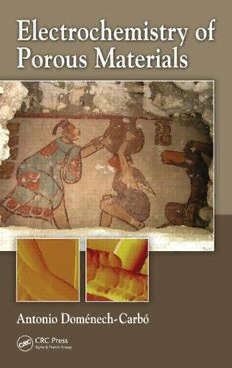
Electrochemistry of Porous Materials PDF
340 Pages·2009·9.953 MB·English
Most books are stored in the elastic cloud where traffic is expensive. For this reason, we have a limit on daily download.
Preview Electrochemistry of Porous Materials
Description:
Porous materials continue to attract considerable attention because of their wide variety of scientific and technological applications, such as catalysis, shape- and size-selective absorption and adsorption, gas storage, and electrode materials. Both research and applications of porous materials—via electroanalysis, electrosynthesis, sensing, fuel cells, capacitors, electro-optical devices, etc.—heavily rely on electrochemistry. Electrochemistry of Porous Materials focuses on generalized theoretical modeling and describes redox processes for different porous materials, assessing their electrochemical applications. Considering the large variety of materials that can be classified as porous, the text focuses on nanostructured micro- and mesoporous materials. Using this approach, the book offers a more focused and practical analysis of key porous materials that are considered relatively homogeneous from an electrochemical point of view. These include: Porous silicates and aluminosilicates Porous metal oxides and related compounds Porous polyoxometalates Metal-organic frameworks Porous carbons, nanotubes, and fullerenes Porous polymers and certain hybrid materials ? With its detailed presentation of advances in electrochemistry of nanostructured materials, this text specifically addresses the foundation and applications of the electrochemistry of microporous materials. It incorporates the latest breakthroughs in applied fields (development of fuel cells, supercapacitors, etc.) and fundamental research (in areas including fractal scaling, photoelectrocatalysis, magnetoelectrochemistry, etc.). Designed to make the topic accessible and understandable for researchers and graduate students working in the field of material chemistry, this volume approximates porous materials chemistry to electrochemists. Selective and streamlined, it culls a wide range of relevant and practically useful material from the extensive literature on the subject, making it an invaluable reference for readers of all levels of understanding.
See more
The list of books you might like
Most books are stored in the elastic cloud where traffic is expensive. For this reason, we have a limit on daily download.
